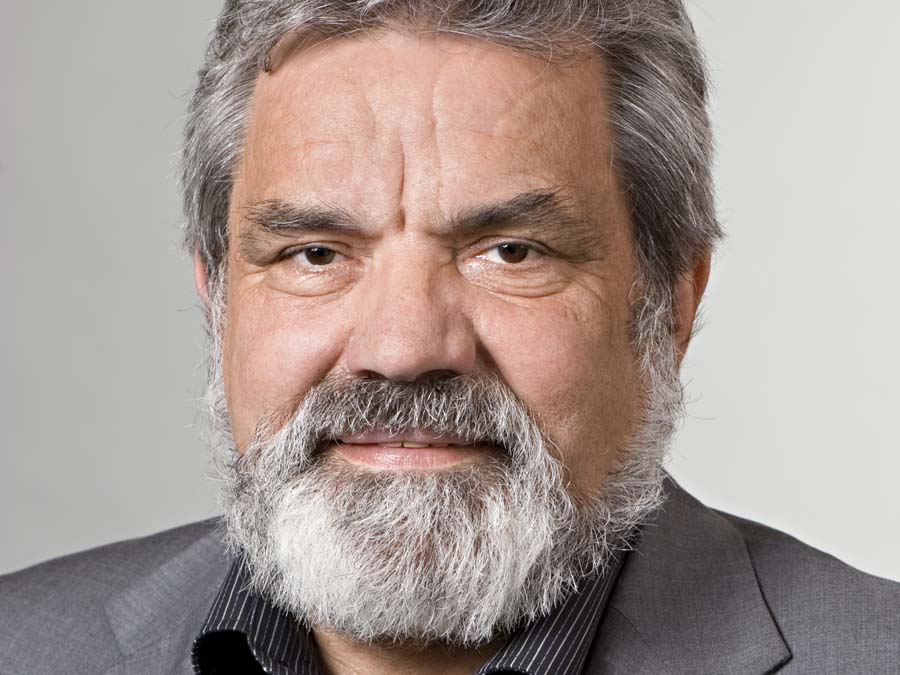TU München names new director to lead its Institute for Advanced Study
Prof. Gerhard Abstreiter takes the helm at the TUM-IAS

The TUM Institute for Advanced Study was created as the centerpiece of the university's institutional strategy in the first round of the Excellence Initiative, a massively funded and highly competitive program aimed at sharpening the profile of Germany's research universities. The TUM-IAS was designed to generate new fields of research in technology and science and to give creative researchers – up-and-coming as well as established talents, both local and international, from industry as well as academia – the freedom they need to develop innovative, even risky ideas. Since 2006, the TUM-IAS has cultivated a community of well over 100 researchers, 70 of whom have been awarded long-term (three-year) fellowships, and has won significant funding from the European Union to further strengthen its programs. Through a new fellowship category named after TUM Nobel laureate Rudolf Mößbauer, the IAS is taking part in the university's push to create 100 new tenure track professorships by the year 2020.
"Talents in all their diversity are at the heart of our push to renew the university and make it more competitive globally," says TUM President Wolfgang A. Herrmann. "This is exemplified not only by initiatives such as the TUM-IAS and the TUM Faculty Tenure Track System, but also by the contributions of extraordinary individuals. Patrick Dewilde and Gerhard Abstreiter are recognized worldwide as leading lights in their respective scientific fields, and both have also distinguished themselves as innovative and highly effective research managers."
New director is a familiar face, in Bavaria and abroad
As the author or co-author of more than 600 scientific publications, which have been cited around 16,000 times, Gerhard Abstreiter is well known worldwide. Active in experimental research and particularly in semiconductor physics, he has contributed to a large range of cutting-edge investigations: structural, electronic, and optical properties of nanostructures; molecular beam epitaxy for high-purity hetero- and nanostructures; self-assembly and self-organization of semiconductor quantum dots and nanowires; and development of novel devices for nanoelectronics, optoelectronics, quantum information technology, and bio-sensing.
A native of Bavaria, Abstreiter has connections to TUM going back to his student days, beginning in 1968. After earning the PhD in physics from TUM in 1975, he worked for four years as a staff scientist at the Max Planck Institute for Solid State Research in Stuttgart and Grenoble. He joined the TUM Physics Department in 1979 as a research group leader, advancing to full professor (chair) in 1987. At the same time he was named the founding director of the Walter Schottky Institute. He led the way in the creation, in 2010, of the Center for Nanotechnology and Nanomaterials. Abstreiter has participated in the TUM-IAS as an advisor, as a Carl von Linde Senior Fellow, and as the host for several other fellows.
Numerous visiting professorships in the United States and Japan have enhanced Abstreiter's international experience and influence. His awards and honors include the Walter Schottky Prize (1986), the Gottfried Wilhelm Leibniz Prize (1987), the Max Born Prize and Medal (1998), the JSPS Senior Fellowship (2000), the Friedrich Wilhelm Joseph von Schelling Prize (2006), and the Heinz Maier-Leibnitz Medal (2006). He has been a fellow of the American Physical Society since 1992 and is an elected member of the Bavarian Academy of Sciences (2007) and acatech (2009).
Abstreiter and Dewilde look back and focus on the future
"Under the leadership of Patrick Dewilde," Abstreiter says, "the TUM-IAS has developed brilliantly over the past few years and is now, from an international perspective, one of the most highly regarded central institutes of TUM. As the new director I would like to carry forward this successful work and further promote innovative research projects and international projects, beyond the already well established fellowship program. Above all, a special concern of mine is to establish the IAS as a lasting center for communication, interaction, and collaboration within TUM."
For his part, Prof. Dewilde offers these parting words: "Participating in the setup of the TUM Institute for Advanced Study as its first full-time director has been a wonderful end-of-career experience for me. Thanks to TUM's vision for its scientific future, the TUM-IAS has been allowed to award 70 long-term fellowships and support an equal number of very promising doctoral candidates in its first six years of existence, attracting some of the best scientists worldwide and establishing more than 20 Focus Groups to explore new tracks in technology, foster research innovation at TUM, and provide a location for exciting international exchange in the center of the Garching campus. I wish its excellent staff and its new director an equally sunny period of further expansion and service to the TUM community as well as the international development of technology and science."
Technical University of Munich
Corporate Communications Center
- Patrick Regan
- presse@tum.de
- Teamwebsite